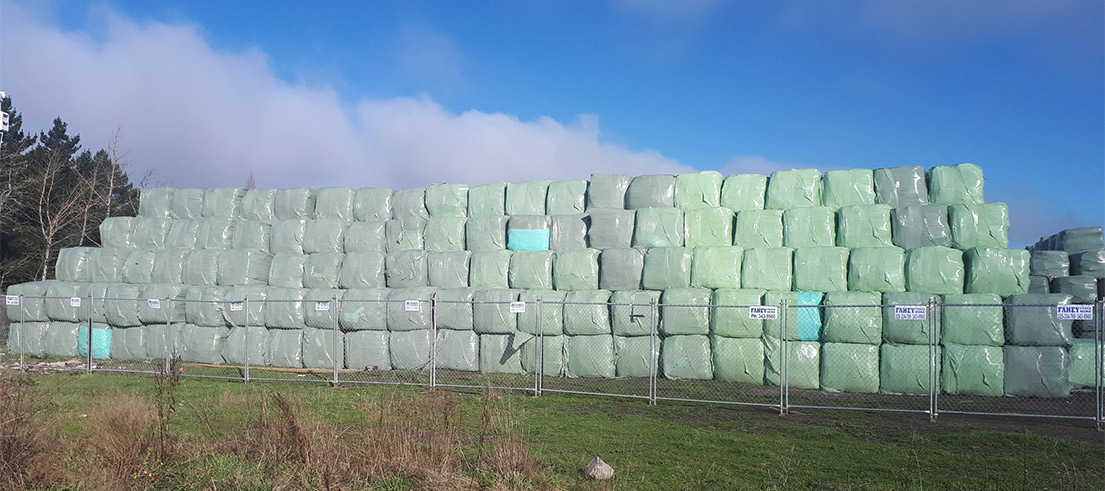Farmers are increasingly doing the right thing when it comes to disposing of bale wrap and other farm plastics.
Plasback commercial manager Neal Shaw estimates there’s been a 50 per cent increase in the amount of bale wrap recycled in Canterbury since 2021.
However, there is room for improvement, with our resource management officers still seeing instances of people burning plastics.
The importance of recycling
Bale wrap, plastic chairs, even the odd tyre and 44-gallon drum, have been spotted by our staff investigating burn piles.
Open burning or burying of farm plastics can release air pollutants and hazardous by-products including heavy metals and dioxins.
This can affect the health of you and your family and can contaminate soil, waterways or food sources.
Resource management officer Garry Husband says bad burning is easy to spot.
“You can tell by the colour of the smoke – it’s often black. If our staff see or hear about smoke like this, we’ll head out and investigate.
“Depending on what we find, the person responsible could face a variety of penalties – including prosecution.”
Recycling is a much safer approach.
How to recycle farm plastics
On-farm collection of plastics is available through Plasback and Agrecovery.
Plasback collects a variety of waste including bale wrap and silage sheets, polypropylene, and twine. Liners and bins can be ordered online from Plasback or from local rural supply stores.
Plasback contractor Matt Anderson picks up wrap from properties in the Kaikōura area and says collections have “gone through the roof” in the past 12-18 months.
“We’ve really noticed a jump, especially with dairy farmers. There are very few in this part of Canterbury who don’t get their wrap collected and recycled.”
ECOLAB 200 and 100 litre drums are free to recycle and collected by Plasback from your farm. The smaller versions can be dropped off at an Agrecovery recycling bin, which you can usually find at a local rural supply merchant. Just remember to triple rinse them, remove the label and ensure no other hazardous substance has been stored in them.
Agrecovery recycles plastics such as containers and drums, as well as small seed, feed and fertiliser bags. The collected plastic is made into reusable products such as underground cable covers and building materials. They also offer free or subsidised disposal of unwanted agrichemicals.
Any farm plastics that cannot be recycled can be taken to your local refuse transfer station for disposal at a landfill. While farm pits are a permitted activity if conditions are met, we want you to be aware of the available alternatives, as this may prevent problems on the farm later.
Increase in recycling a positive trend
Neal Shaw says the increase in farm material recycling across Canterbury reflects a nationwide trend.
In 2021, 2,600 tonne of bale wrap was collected and recycled across the country. That rose to 5,500 tonne in 2022, and 6,200 tonne last year.
He believes an incentive scheme from Fonterra has a lot to do with the rise.
“It’s given some farmers the push they needed to break bad habits and helped them realise the all-round benefits of doing the right thing.”
He points out that education is still important.
“Only about half the plastic silage wrap used by farmers each year (nationwide) is recovered and recycled, so there’s still plenty more to do in this space.”

